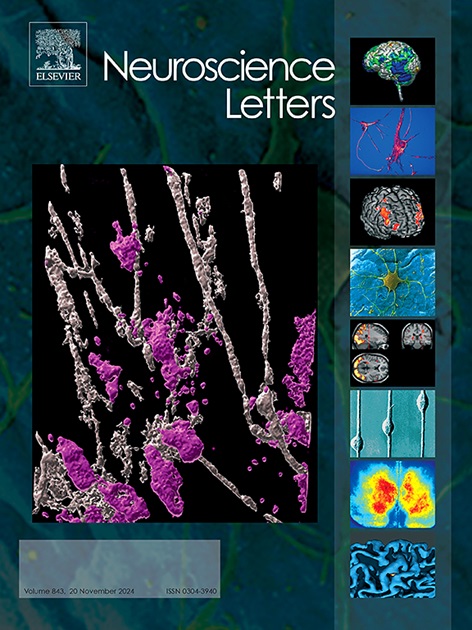Remimazolam alleviates sleep deprivation induced anxiety-like behaviors via regulating the STING pathway
IF 2.5
4区 医学
Q3 NEUROSCIENCES
引用次数: 0
Abstract
Sleep loss becomes a major problem in modern life and increases the incidence of anxiety disorders. Benzodiazepines are the most commonly used anxiolytic medications. Remimazolam is an ultra-short-acting benzodiazepine, which has been shown to reduce the preoperative anxiety levels in patients. However, the effects on anxiety-like behaviors caused by chronic sleep deprivation (CSD) and the underlying molecular mechanisms remain unclear. Here, we found that administration of remimazolam can effectively alleviate anxiety-like behaviors induced by CSD. Furthermore, remimazolam can significantly preserve the sleep deprivation-induced deficits in neuronal calcium activity in CA1 of the hippocampus. In addition, stimulator of interferon genes (STING) was activated in CA1 after CSD, while remimazolam was sufficient to block the activation of the STING pathway. Further study showed that inhibiting the activation of STING also effectively alleviates the anxiety symptoms induced by CSD. Overall, our research offers new insight and a promising therapeutic agent for the anxiety disorders caused by sleep deprivation.
雷马唑仑通过调节STING通路减轻睡眠剥夺引起的焦虑样行为。
睡眠不足已成为现代生活中的一个主要问题,并增加了焦虑症的发病率。苯二氮卓类药物是最常用的抗焦虑药物。雷马唑仑是一种超短效苯二氮卓类药物,已被证明可以降低患者术前焦虑水平。然而,慢性睡眠剥夺(CSD)对焦虑样行为的影响及其潜在的分子机制尚不清楚。本研究发现,给予雷马唑仑可以有效缓解CSD诱导的焦虑样行为。此外,雷马唑仑可以显著保护睡眠剥夺引起的海马CA1神经元钙活性缺陷。此外,CSD后CA1中干扰素基因刺激因子(STING)被激活,而雷马唑仑足以阻断STING通路的激活。进一步研究表明,抑制STING的激活也能有效缓解CSD诱导的焦虑症状。总的来说,我们的研究为睡眠剥夺引起的焦虑症提供了新的见解和有希望的治疗药物。
本文章由计算机程序翻译,如有差异,请以英文原文为准。
求助全文
约1分钟内获得全文
求助全文
来源期刊

Neuroscience Letters
医学-神经科学
CiteScore
5.20
自引率
0.00%
发文量
408
审稿时长
50 days
期刊介绍:
Neuroscience Letters is devoted to the rapid publication of short, high-quality papers of interest to the broad community of neuroscientists. Only papers which will make a significant addition to the literature in the field will be published. Papers in all areas of neuroscience - molecular, cellular, developmental, systems, behavioral and cognitive, as well as computational - will be considered for publication. Submission of laboratory investigations that shed light on disease mechanisms is encouraged. Special Issues, edited by Guest Editors to cover new and rapidly-moving areas, will include invited mini-reviews. Occasional mini-reviews in especially timely areas will be considered for publication, without invitation, outside of Special Issues; these un-solicited mini-reviews can be submitted without invitation but must be of very high quality. Clinical studies will also be published if they provide new information about organization or actions of the nervous system, or provide new insights into the neurobiology of disease. NSL does not publish case reports.
 求助内容:
求助内容: 应助结果提醒方式:
应助结果提醒方式:


